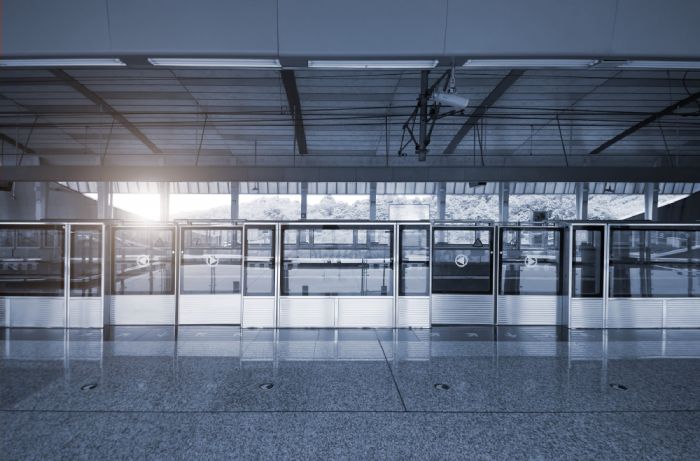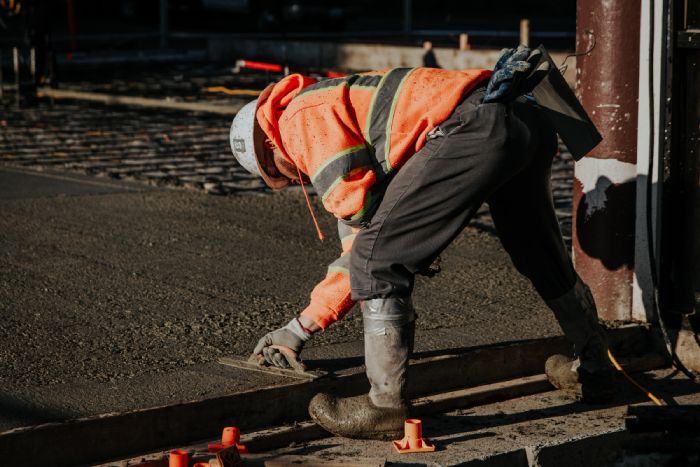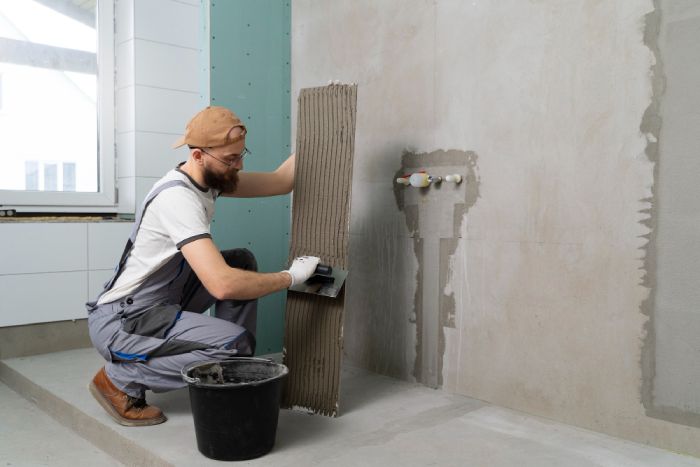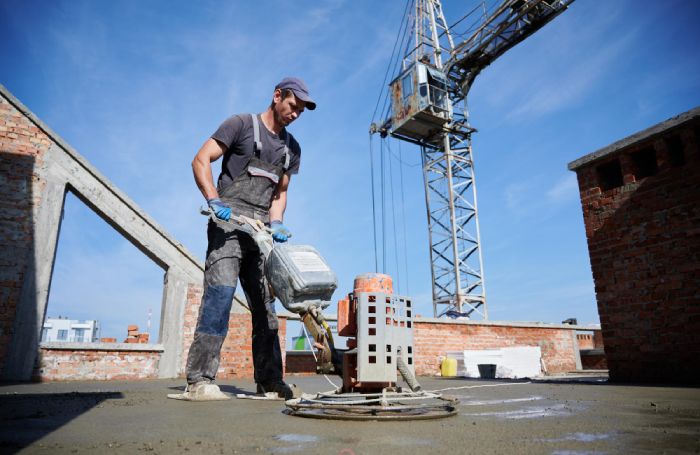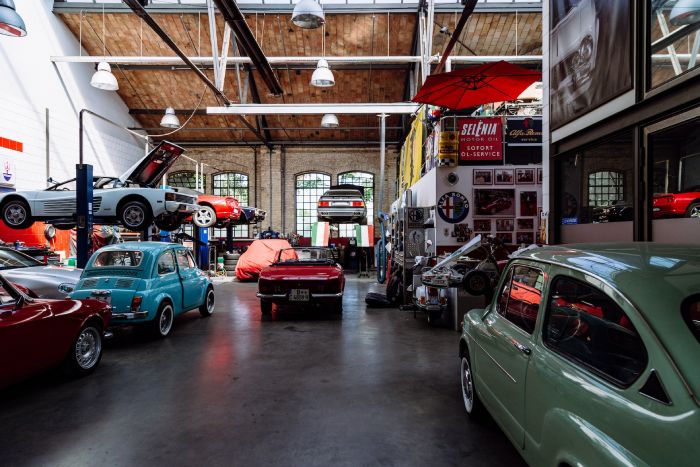Have you ever wondered how people keep their garage floors looking clean and shiny? Well, one popular option is polyurea coating. It’s a special type of protective covering that is applied to the flooring to make it stronger and more durable. Just like how we put on a raincoat to stay dry in the rain, it acts as a shield for the garage flooring, protecting it from stains, spills, and scratches.
In this article, we will go over what polyurea garage floor coating is, its benefits and downsides, as well as the difference between epoxy and polyaspartic coating. Let’s dive in!
What is Polyurea Garage Floor Coating?
Polyurea, also known as polyaspartic, garage floor coating, is like a special cover for flooring. It’s made from a strong material called polyurea that can protect flooring from things like scratches and chemicals. When you put this kind of finishing on your flooring, it makes it really tough and durable. It can handle heavy things being dropped on it and won’t get damaged easily.
The great thing about these coatings is that they dry quickly, so you don’t have to wait too long before you can use your vehicle space again. They also stick really well to the flooring, which means they stay in place and keep doing their job for a long time. Plus, they come in different finishes, like shiny or not shiny, and you can even choose different colors or add decorative flakes to make your flooring look cool.
Overall, polyurea garage floor coatings are a smart choice if you want to protect your flooring and make it look nice at the same time. They’re tough, easy to install, and can make your parking area a better place for everything you do there.
Pros of Polyurea Garage Floor Coating
Polyurea garage floor coating is a really good option if you want to make your flooring better. It has a lot of advantages that make it worth considering. Let’s look at them:
- Durability: Polyaspartic finishes are really strong and tough. They can handle lots of people walking on them, cars driving over them, and even tools dropping on them without getting damaged easily. This means your flooring will stay looking great for a long time.
- Chemical Resistance: Parking spaces often have chemicals like oil, gasoline, and solvents that can stain or damage the floors. But polyaspartic finishes are really good at protecting the floors from these chemicals. They create a barrier that keeps your flooring safe from harm.
- Quick Application: Polyaspartic finishes can be applied really fast. They dry quickly, so you can start using your parking space again soon after applying the finishing. This is great if you don’t want to wait too long.
- Smooth and Seamless Finish: Polyaspartic finishes make the flooring really smooth and seamless. This not only looks good, but it also makes cleaning really easy. You won’t have to worry about dirt, dust, or things getting stuck in cracks because there won’t be any cracks.
- UV Stability: Some polyaspartic finishes can handle sunlight without fading or changing color. This is important if your parking room has windows or if you want to use it for things other than parking cars, like a workshop or play area.
Cons of Polyurea Garage Floor Coating
Polyurea garage floor coating has some things you need to know before deciding to use it. Let’s talk about the downsides:
- Cost: Polyaspartic finishes are more expensive than other options. They cost more because they have advanced technology and work really well. So, you need to think about how much money you have and if the benefits are worth the higher price.
- Professional Installation: To put on polyaspartic finishes, you need special tools and someone who knows how to do it right. It’s better to hire a professional to do it for you. This way, the finishing will be put on correctly and will last a long time.
- Surface Preparation: Before using polyaspartic finishes, you have to get the floor ready. This means cleaning it, fixing any cracks, and making the surface rough so the coating sticks. If you don’t do this step well, the finishing might not stay on properly.
Remember, even though polyurea garage floor coating has good points, it’s important to think about the downsides too. The higher cost, the need for professional help, and the surface preparation are things you should consider when deciding if polyaspartic finishes are right for your floors.
Is Polyurea Garage Floor Coating Slippery
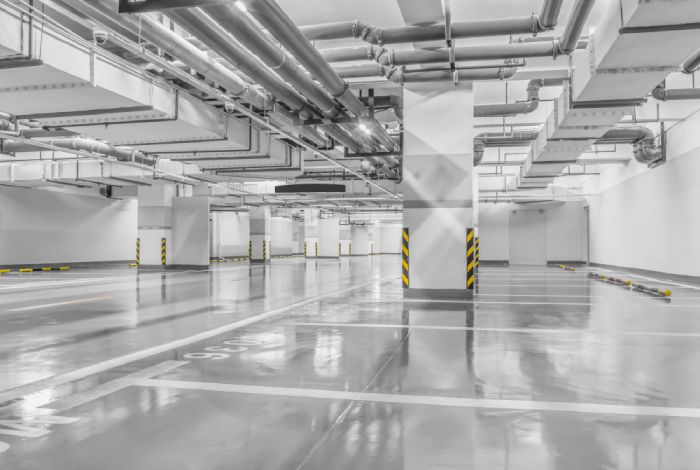
Polyaspartic is a special finishing that people use on their parking floors. Some people wonder if it’s slippery. So, let’s talk about things that affect slipperiness:
- Texture: The way a floor feels can make it more or less slippery. Polyaspartic floors are usually smooth, but sometimes they add things to make it less slippery. These things make the floor rough so you can grip it better and not slip.
- Environmental Conditions: The slipperiness of the floors can also depend on the environment. If it’s wet or humid, the flooring can be more slippery. But polyaspartic finishing is made to resist water and can be made to be safer, even if it’s wet.
While polyurea garage floor coating can be slippery, adding special things can also make it less slippery. When deciding if polyaspartic is a good choice for your flooring, think about how it feels and the conditions in your parking space.
How Polyurea Reduces Slipperiness
These special garage floors have certain advantages that help reduce slipperiness. Slippery floors can be dangerous and cause accidents, but with these unique garage floors, you can minimize the risk of slipping and falling. Let’s explore some of the reasons why these floors are less slippery and how they can make your parking space safer.
- No Gaps or Holes: It makes the flooring smooth without gaps or holes. This helps to stop water and dirt from building up and making the flooring slippery. It also makes it easier to clean.
- Protection from Chemicals: Polyaspartic is really good at resisting chemicals like oil and grease. By keeping these things off the floors, it helps to keep it clean and not slippery.
- Special Additives: You can add special things to this kind of finishing to make it even less slippery. These things make the flooring rougher, so you can grip it better and not slip, even if it’s wet.
How Long Does a Polyaspartic Floor Last?
Polyaspartic floors are made to last a really long time. On average, this kind of flooring can stay in good shape for about 15 to 20 years or even more! There are a few things that can affect how long a polyaspartic floor lasts:
- Taking Care of It: If you want polyaspartic flooring to last a long time, you have to take care of it. That means keeping it clean by sweeping or mopping regularly and cleaning up spills quickly. Also, be careful not to scratch the floor by dragging heavy things or using sharp tools on it.
- How It’s Used: How much the flooring is used can make a difference. If a lot of people or heavy things are always moving on it, it might wear down faster. But if it’s in a place with less activity, it can last even longer.
Good Installation: The way the polyaspartic is put in is important too. It’s best to have a professional do it right. They need to prepare the floor well and put on the finishing correctly. If it’s done well, the flooring has a better chance of lasting a long time.
Cost Estimates
The cost of polyurea garage floor coating can vary depending on different things. While the actual cost can change based on where you live and your specific situation, let’s give you a general idea that’s easier to understand. On average, you can expect to pay between $3 and $8 for every square foot of your garage floor. Remember, this is just an estimate, and the actual cost may be higher or lower depending on some factors we’ll talk about.
Factors Affecting the Cost:
Let’s discuss factors that can affect the cost of polyurea garage floor coating. This is a type of durable coating that can be applied to garage floors to protect them and make them look better. The cost of this finishing can vary based on a few different things. These factors can either make the cost go up or down. Let’s explore them further!
- Garage Size: The size of your garage is important. If it’s big, it will cost more because we need more of the coating material to cover the flooring.
- Preparing and Fixing: Before we put on the coating, we have to get the floor ready. That means cleaning it, fixing any cracks or damages, and removing old finishings. If there’s a lot of fixing to do, it can make the cost higher.
- Quality of the Coating: There are different kinds of finishing you can choose from. Some are more expensive because they last longer, protect against chemicals, or have special things like being less slippery. The better the quality, the more it can cost.
- Professionals Doing the Job: Sometimes, it’s better to hire experts to do the coating for you. They know how to do it right and have the tools. But hiring professionals can make the cost go up compared to doing it yourself.
Remember, these are just some things that can affect the cost of polyurea garage floor coating. It’s always a good idea to talk to an expert who can give you an estimate based on your specific situation.
Is Polyurea Better than Epoxy
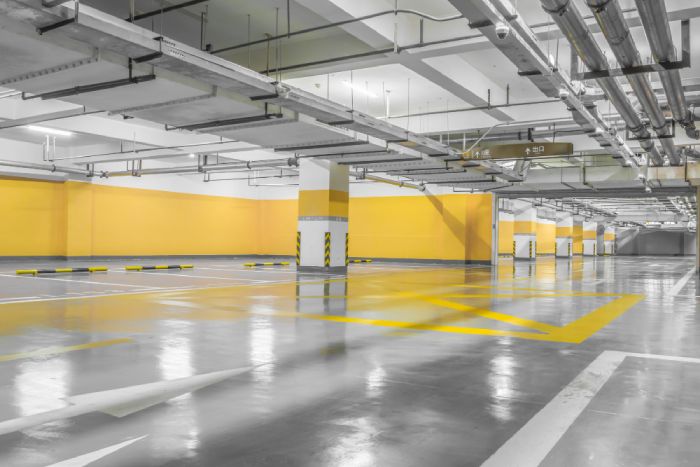
When you have to choose between polyurea and epoxy coatings, it can be helpful to understand what each type is good for. Polyurea and epoxy coatings are both used to protect and strengthen surfaces like floors. Here are some important things to consider when deciding which one is better for your needs:
- Durability: It is extremely tough and can handle heavy use without getting damaged easily. It can resist things like chemicals and sunlight. Epoxy is also strong, but it might not be as good at resisting certain chemicals and sunlight.
- Application Time: These can dry really fast, usually in just a few hours. Epoxy takes longer to dry because it might need more coats and more time in between to dry properly.
- Flexibility: It can bend and move with the surface it’s applied to, which helps prevent cracks or peeling. Epoxy is more rigid and might develop cracks over time.
- Adhesion: These can stick really well to different surfaces, like concrete. It stays put and creates a strong finish. Epoxy also sticks well, but sometimes you have to prepare the surface more carefully before applying it.
- Chemical Resistance: It is great at resisting chemicals, like oils and solvents. It’s suitable for places where there might be harsh substances. Epoxy is also resistant to chemicals, but it might not be as resistant as polyaspartic finishing.
To sum it up, polyaspartic finishing is really durable, dries fast, bends with the surface, sticks well, and is good with chemicals. Epoxy is also strong, but it might take longer to dry, could develop cracks, and might not be as good with certain chemicals. It’s always a good idea to ask professionals for advice to help you decide which one is best for your project!
Choosing the Right Coating
When you’re trying to choose between polyurea and epoxy coatings for your floors, there are a few important factors to consider. Both types of coatings have their own advantages and it’s important to think about what you need and what will work best for you. Let’s take a closer look at some key aspects to consider when making your decision.
- What You Need: If you want a coating that dries quickly or if you have a big area to cover fast, polyaspartic is a good choice. But if you care more about how it looks or if you have a smaller project, epoxy might be better.
- The Surface: These kinds of coatings can go on surfaces that aren’t perfect or a bit damp. Epoxy coatings need a clean and dry surface.
- Chemicals: If your project deals with strong chemicals or fuels, it is stronger and can handle them better than epoxy.
- Cost: Epoxy coatings are usually cheaper, so if you don’t have a lot of money, epoxy might be a better option.
Both polyurea and epoxy have their good sides and are used in different places. Polyaspartic is tough, resists chemicals, and dries quickly. Epoxy looks nice, sticks well, resists chemicals too, and costs less. It depends on what you need for your project.
Looking for Polyurea Garage Floor Coating Near Me
Polyurea garage floor coating has lots of advantages, like being strong, resistant to chemicals, easy to apply, and it gives a smooth finish. That’s why many people want it for their floors. But there are some things to consider too like it can cost more, you might need professionals to do it, and the surface needs to be prepared well.
If you’re looking for a strong and long-lasting coating for your parking space flooring, Martin Epoxy can help you with polyurea garage floor coating. We know how to do it right, from preparing the surface to applying the coating perfectly. This will make your floors look great and work well. Contact us today to learn more about how polyurea garage floor coating can make your parking awesome and last a long time.

